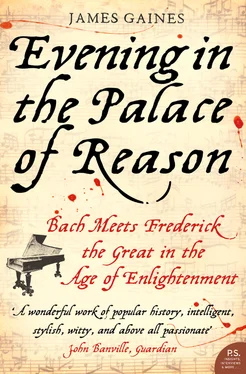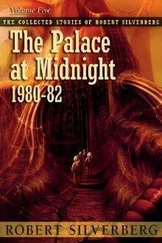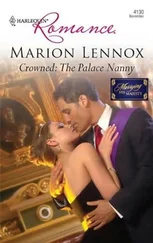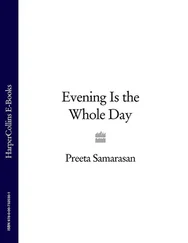Of critical importance for Bach and his time, Martin Luther sided with the Platonic idea of music as evidence of divine order, and he set out to rehabilitate Pythagoras as a servant of God. In his commentary on Genesis he laments the fact that “we have become deaf toward what Pythagoras aptly terms this wonderful and most lovely music coming from the harmony of the spheres.” No less than the seventeenth-century astronomer Johannes Kepler gave Luther’s position the stamp of scientific certainty in his great work, Harmonices Mundi, where he correlates the orbits of the planets to the intervals of the scale and finds them to be “nothing other than a continuous, many voiced music (grasped by the understanding, not the ear).” This last point was debated: Some thought the celestial music was abstract, an ephemeral spiritual object, but others insisted it was real, inaudible to us only because it had been sounding constantly in the background from the time of our birth. In either case music was a manifestation of the cosmic order. “Now one will no longer be surprised,” Kepler wrote, “that man has formed this most excellent order of notes or steps into the musical system or scale, since one can see that in this matter he acts as nothing but the ape of God the Creator, playing, as it were, a drama about the order of celestial motions.” One of his chapters is titled “There Are Universal Harmonies of All Six Planets, Similar to Common Four-Part Counterpoint.”
Never were allegories packed into music more enthusiastically than in Bach’s time. Andreas Werckmeister was far from alone in attaching specific integers, for example, to the Trinity: 1 stood for the Father, 2 for the Son, 3 for the Holy Spirit, the last being the sum and proportion of Father and Son (1:2, a unison at the octave). Elsewhere we find that 4 represented the four elements of matter and the four seasons, that 5 meant justice (because it stands at the center of the first ten numbers) and humanity (five senses and the five appendages of arms, legs, and head). Saint Augustine favored the number 6 (creation took six days, so God must have found 6 to be a perfect number), 7 stood for the planets, virtues, liberal arts, deadly sins, and ages of man (although sometimes it is said not to stand for anything, since on the seventh day God rested). Twelve covered apostles, months, prophets, etc. Then there were the combinations, for example: 7 being 3 (the Trinity) plus 4 (elements of matter), and 12 being 3 (ditto) times 4 (ditto), it followed (trust me) that 7 and 12 were perfect numbers. And so on. All this from Pythagoras, whose followers thought the best number was 10 because it was the sum of 1, 2, 3, and 4, elemental components of the “figured number” known as the Pythagorean Tetraktys:
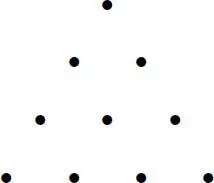
It is easy to have fun with number theory, and some of the best such fun is in the distant reaches of the Bach literature, where one can read, for example, that he left a prophecy in musical code of the date of his death on the Rosicrucian calendar. On the other hand, it is only the extent to which Bach’s music contains meanings coded in numbers that is hotly debated. The fact that it contains such coded meanings is not.
Cosmological harmony was actually one of the few ideas on which the philosophers, scientists, and theologians of Bach’s time were agreed. Newton, for example, could not imagine that a world as orderly as this one could have occurred by “natural Cause alone.” A “powerful, ever-living Agent … governs all things,” he concluded, “not as the soul of the world, but as Lord over all.” Newton’s Agent was Luther’s Celestial Contrapuntist, whose woven voices were like so many planetary orbits.
We marvel when we hear music in which one voice sings a simple melody, while three, four, or five other voices play and trip lustily around … reminding us of a heavenly dance.
This heavenly dance was nowhere more sublime than in canon, the strictest form of contrapuntal writing, in which an entire piece of music is built from a single melodic phrase playing over itself at different intervals of time and key, in varying rhythms and tempi, sometimes appearing backward, inside out, or upside down, and sometimes continuing, at least theoretically, forever. Andreas Werckmeister drew the analogy of cosmos to counterpoint even more explicitly than Luther had done:
The heavens are now revolving and circulating steadily so that one [body] now goes up but in another time it changes again and comes down … We also have these mirrors of heaven and nature in musical harmony, because a certain voice can be the highest voice, but can become the lowest or middle voice, and the lowest and middle can again become the highest … [In the case of canon] one voice can become all the other voices and no other voice must be added …
Another of Bach’s contemporaries imagined the moment when the first contrapuntist, stumbling on a perpetual canon, found “the beginning and end bound together” and discovered “the eternal unending origins as well as the harmony of all eternity.”
From such a celestial height, perhaps it is possible to look again at a young boy copying music from his brother’s notebook on a moonlit night and see what he is doing a bit more clearly. The composers in the “moonlight manuscript”—Kerll, Froberger, Pachelbel—were the reigning masters of counterpoint, men who knew about the great design, who plied its strings and levers. To a boy so recently an orphan, simply the belief that there was such a design—that God was present in an orderly universe—must have been as comforting as it was elusive. His brother’s notebook was the closest Sebastian had ever come to such an idea of life and music, and the gesture of putting his hand through the grille of that cupboard was about more than the desire for a musical education: He was reaching for answers. Christoph had been Pachelbel’s (the sorcerer’s) apprentice, so the secrets in his notebook were worth any amount of lost sleep to Sebastian. But in this light, Christoph’s attitude is no less understandable: What gave his little brother, a schoolboy, the right to such precious and hard-won knowledge? Of course his brother took away Sebastian’s copy of the notebook, and of course he would have forbidden anyone to copy it in the first place.
Such a reading of this anecdote requires no great psychoanalytic reach. Sebastian’s worldview was profoundly allegorical, like that of his time and culture. The favored allegories at the time were Lutheran, of course, but not exclusively so. After all, Kepler had read horoscopes, and both Newton and Leibniz still had hopes for alchemy. Efforts to advance the education of Sebastian’s day could hardly be called enlightened, confounded as they still were by ignorance and superstition. The seventeenth-century educational reformer Jan Amos Comenius, for example, introduced physics into the curriculum, but it was a physics in which the world’s qualities were exactly three: “consistence, oleosity and aquasity,” the attributes of salt, sulfur, and mercury, a decidedly medieval stew. So Sebastian’s education was as thoroughly theological, or, more broadly, mythological, as his father’s and grandfather’s had been.
In tertia, where Sebastian began his Lyceum studies in Ohrdruf, there was some reading of classics and history, but it was carefully edited for religious content; most of his class time was spent on Scripture and the catechism. In secunda and the first part of prima, he got lots of Latin—especially rhetoric and oratory—as well as some Greek, math, history and science, but his hardest work was on Leonhard Hutter’s exhaustive and exhausting exegesis on Lutheran doctrine, the Compendium locorum theologicorum, hundreds and hundreds of pages in Latin, great chunks of which he was expected to memorize.
Читать дальше
